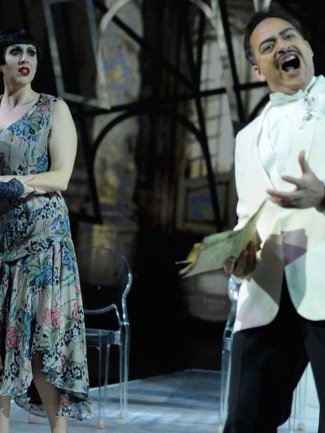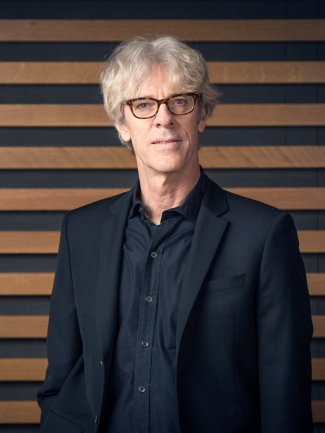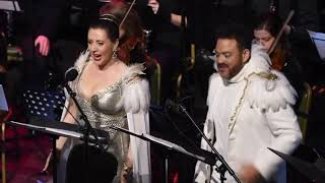Satan’s Fall
In the vast 17th century epic of John Milton’s Paradise Lost there lives a story within the story. It concerns the essential prequel to the sacred tale: Why did Satan do it?
How and why does Almighty God have an adversary? We get an answer in Books V and VI where we learn of Satan’ journey to the dark side and of the mighty battle that cast him out of heaven.
The story is told by the archangels Raphael and Raphaella, accompanied by the choir in various configurations. God, Satan and Messiah are big solo singing roles. The dramaturgy can be illustrated by projections of the fantastic images by Blake, Dore and others. These paintings are so specific (and magnificent) that the singers can pretty much stand and deliver.


